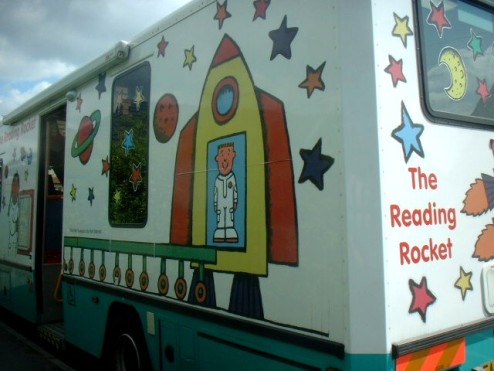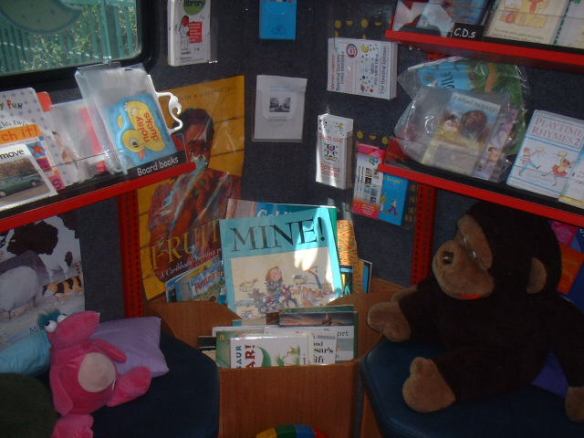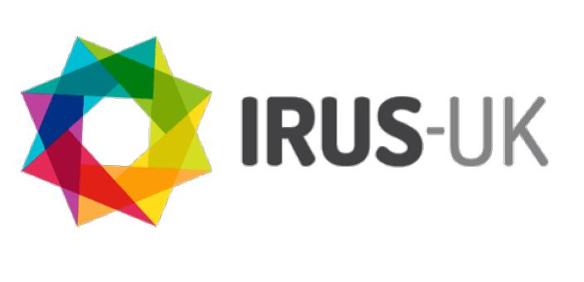You may be familiar with the sight a a mobile library driving down the road, or perhaps if you live in a particularly rural area you may visit one yourself. To avid readers who can’t get to a static library for one reason or another they are a total lifeline for books and other library resources. Mobile libraries operate around the world in many countries service remote and disadvantaged communities, but also lurk around the streets of towns and cities bringing the library to them.

But, did you realise that mobile libraries have their specialities? Some are specifically designed, built, kitted out and stocked for the use of children – children’s mobile libraries (CMLs). Even these can have their special focus. For example, CMLs designed for under-fives that visit nurseries and under-five’s groups, ones designed to visit schools that bring supplies for students and teachers, ones that also go to parks, street corners, after-school clubs, little villages and traveller sites, anywhere where there are children.

Most children’s mobile libraries are complete libraries on wheels, having book collections spanning all subjects, tastes, abilities suitable for all ages under 18 and books on parenting and supporting children as well. Some are equipped with computers whereas other specialise in story telling activities alone, and do not lend out the books.
Storytelling, or reading aloud to groups of children from the books on the vehicle, is a common activity on any type of CML. In the UK, CMLs are operated by local authorities, either as part of the public library service or the schools library service. The general aims of the services are to encourage reading. The funding for these vehicles can be quite precarious, so when you look over a number of decades you see that they can pop up in places, like mushrooms, and then disappear almost as quickly to be followed some years later by another one.
In other countries, charities operate CMLs with the intention of spreading literacy. One specif project is The Book Bus. which is operated by a UK charity called the Book Bus foundation. This has a small fleet of buses operating in Zambia, Malawi and Ecuador. The books that they lend are carefully chosen to be relevant to the communities they serve.
These vehicles are not gimmicky marketing tools for local libraries, they are not simple entertainment for children. The fact that they move around means that they can go anywhere where there are children who need access to literature and information. For example, remote and rural communities where avid readers devour books faster than parents can buy them, places of deprivation behind the streets of towns and cities where children do not know how to hold a book, never mind what adventures the book contains, and traveller communities, refugee sites and secure units.
They spread literacy around in odd corners and bring a sense of heightened excitement in children as they anticipate this magical visit of a library that comes along, and then vanishes, only to be summoned again, a week, fortnight or month later. Just in time to finish the books you borrow, and ready for you to find new delights on board.




